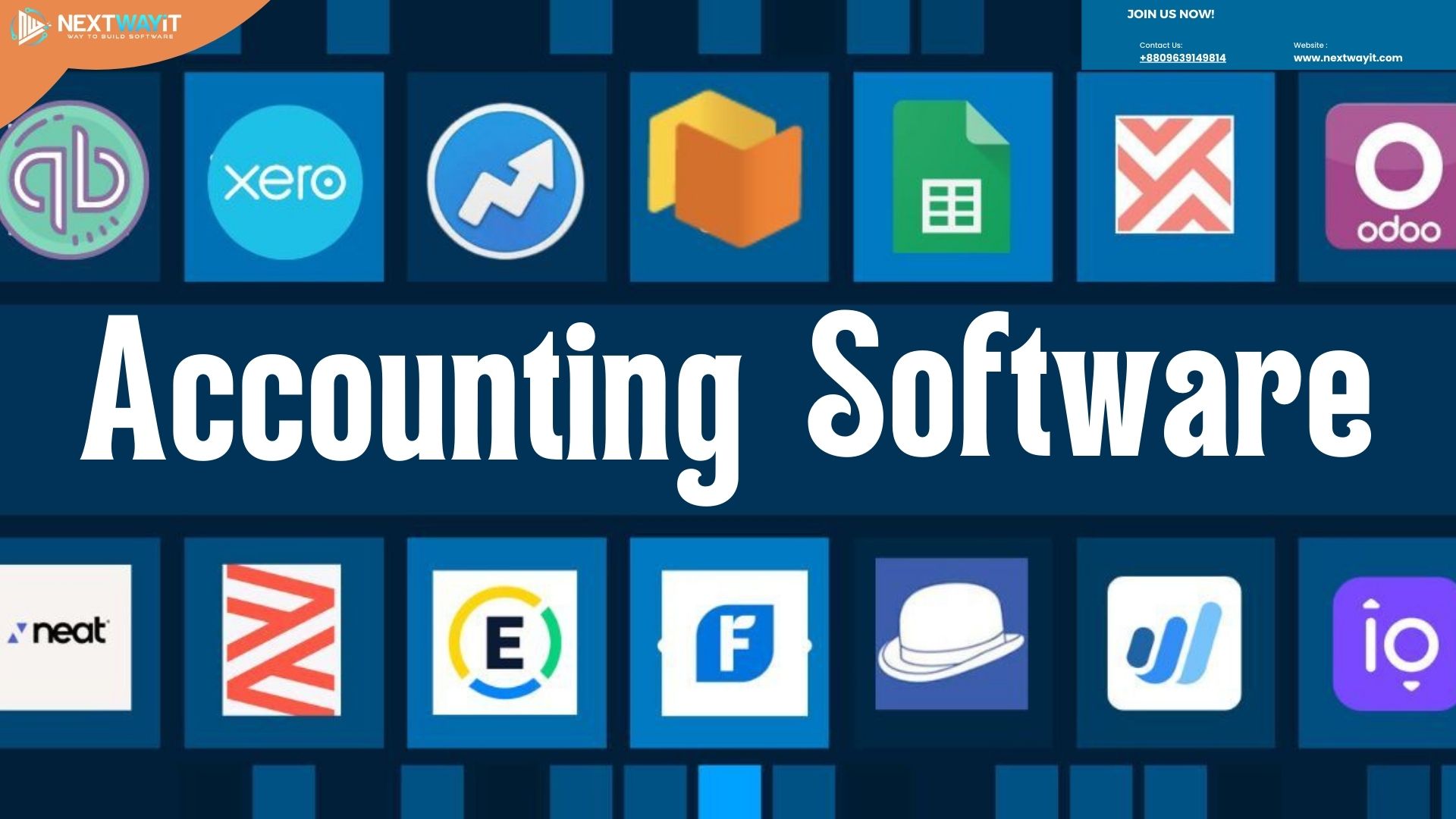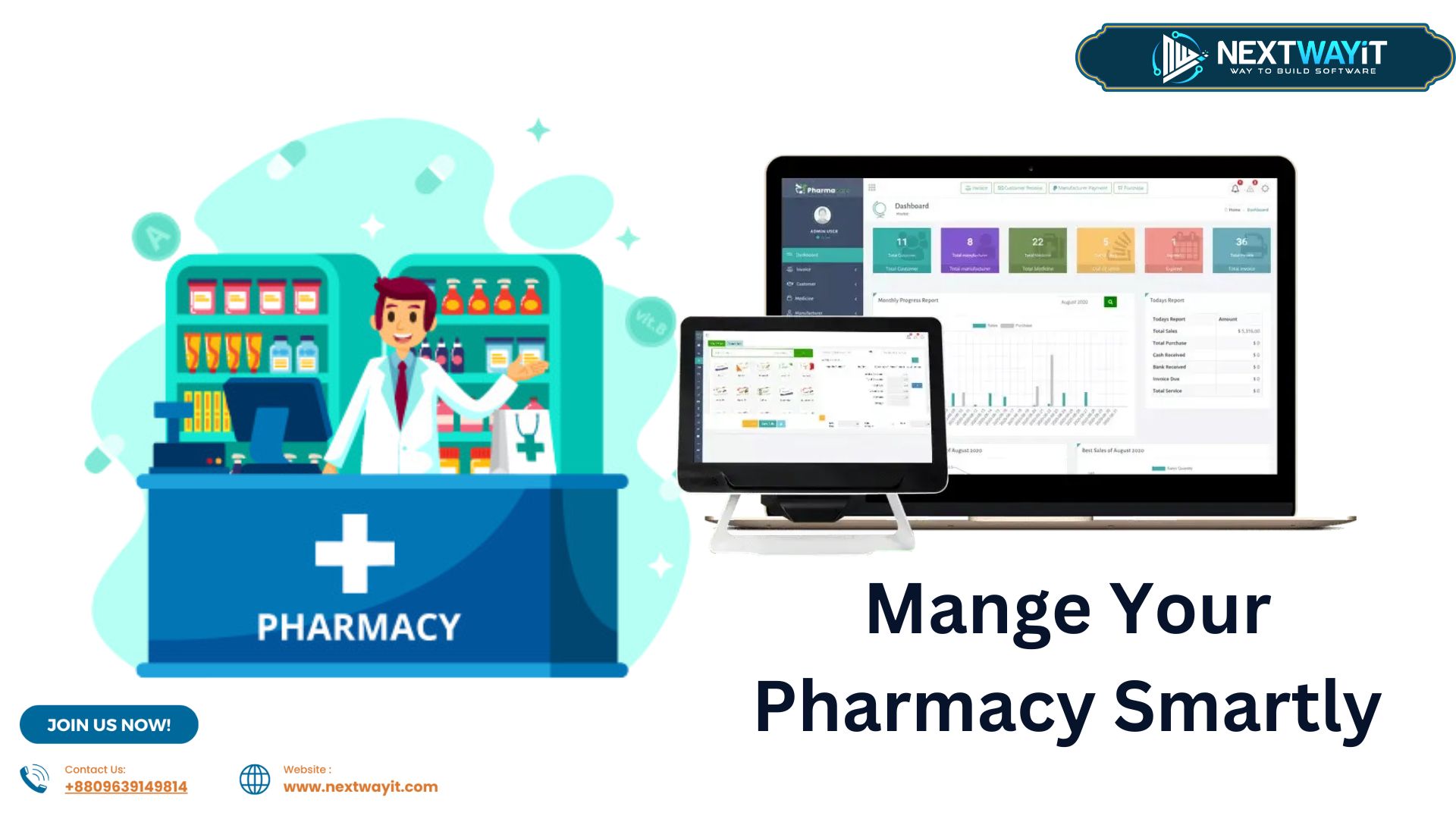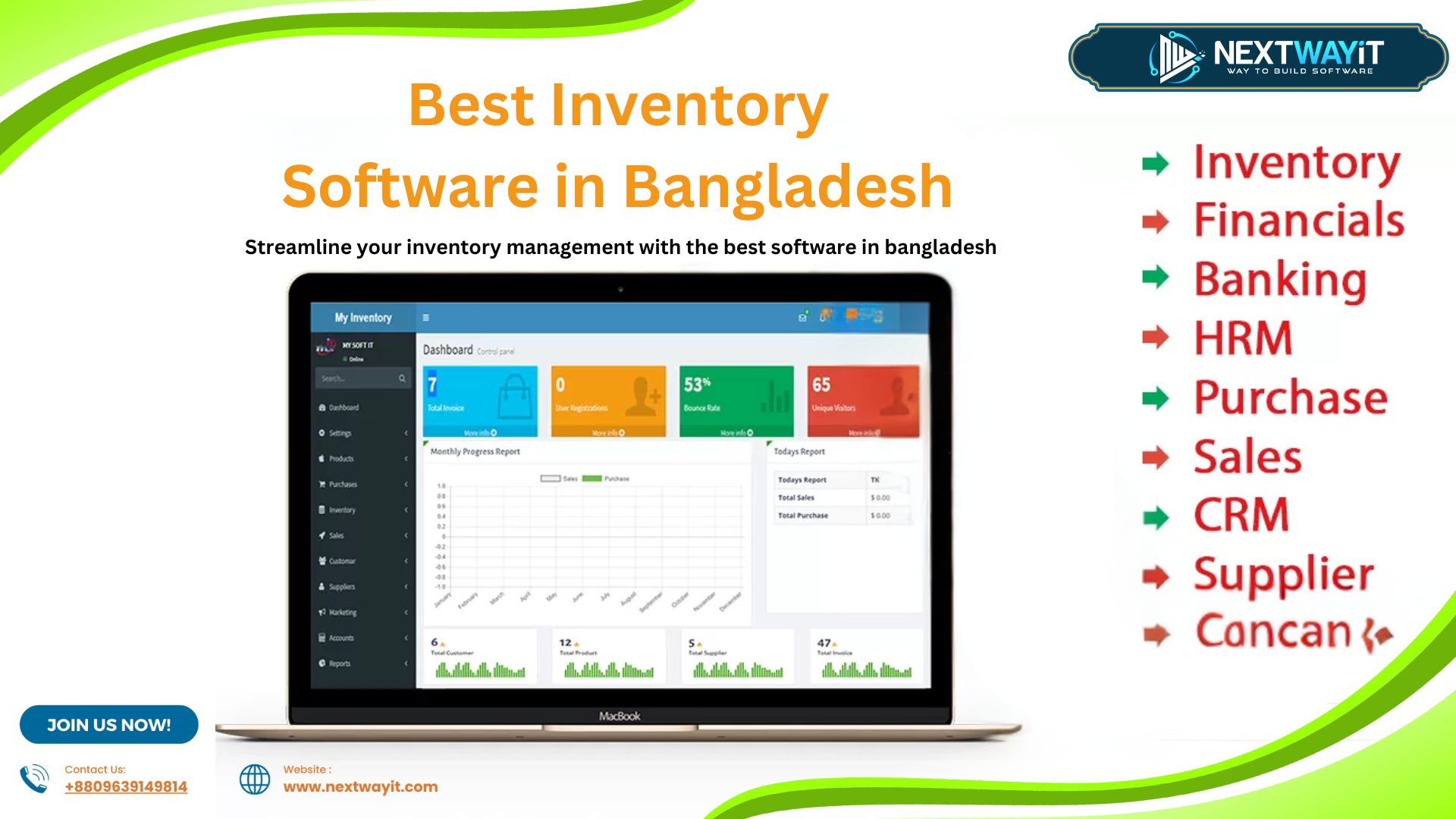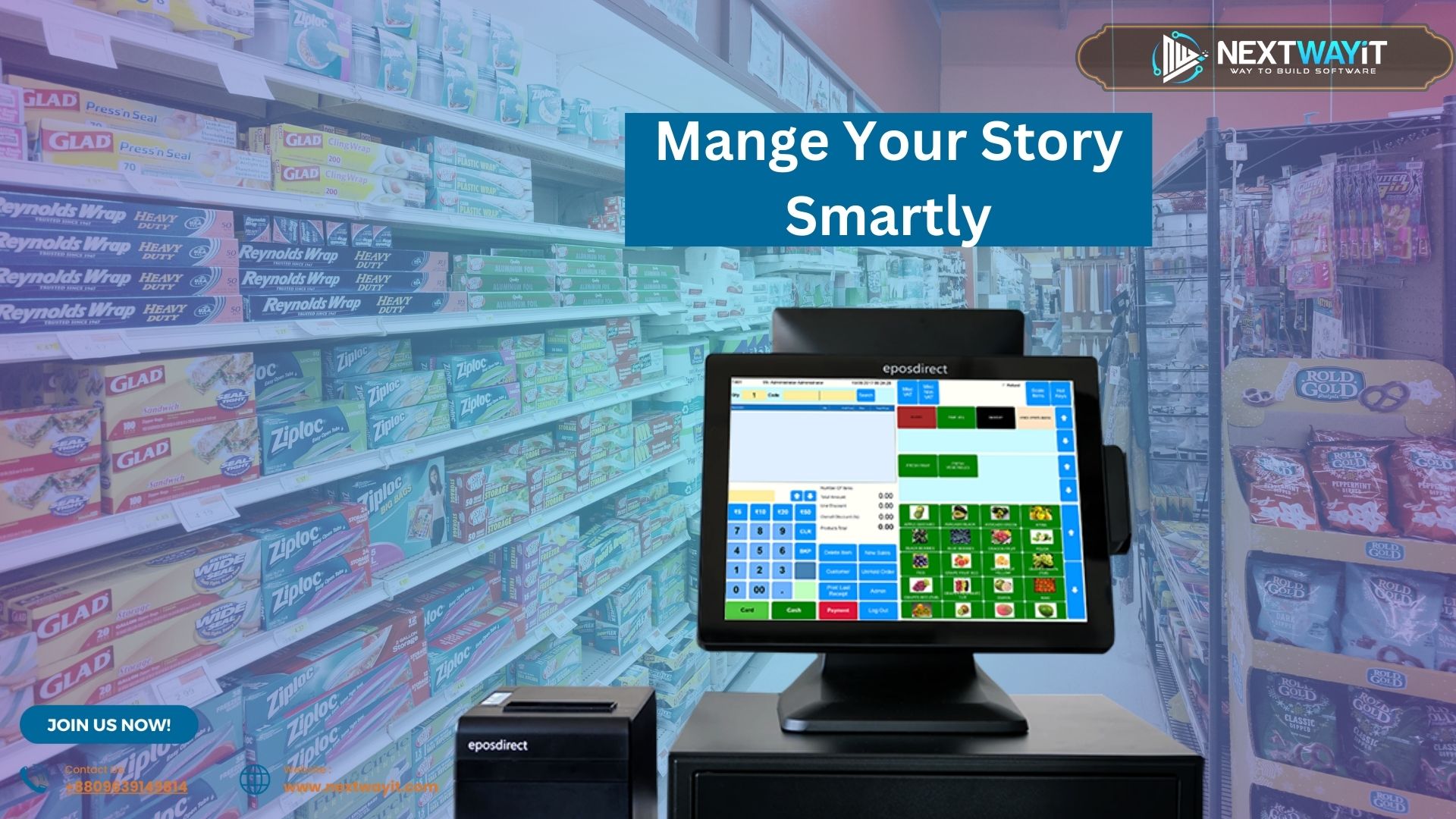
Accounting Software Solutions: Empowering Businesses for Financial Success
In this article, we’ll explore about Accounting Software Solutions. In today’s rapidly evolving business landscape, efficient financial management is paramount for the success and growth of any organization. As the SEO of NextWay IT, specializing in Accounting Software Solutions, I understand the significance of leveraging technology to streamline financial processes and drive business performance.
Introduction to Accounting Software Solutions
Accounting software solutions are powerful tools designed to automate and optimize various accounting tasks, ranging from invoicing and payroll processing to financial reporting and tax compliance. By centralizing financial data and providing real-time insights, these solutions empower businesses to make informed decisions and achieve greater financial transparency.
Understanding the Importance of Accounting Software
Streamlining Financial Processes
One of the primary benefits of accounting software is its ability to streamline complex financial processes. By automating repetitive tasks such as data entry and reconciliation, businesses can save time and reduce the risk of errors.
Enhancing Accuracy and Efficiency
Accounting software solutions leverage advanced algorithms and machine learning algorithms to ensure accurate financial reporting and analysis. This not only improves the overall efficiency of the finance department but also enables better decision-making.
Facilitating Compliance
With ever-changing regulatory requirements, compliance is a major concern for businesses of all sizes. Accounting software solutions help organizations stay compliant with tax laws, industry regulations, and financial standards, reducing the risk of penalties and fines.
Key Features to Look for in Accounting Software Solutions
When choosing an accounting software solution, it’s essential to consider several key features to ensure it meets your business needs effectively.
Cloud-Based vs. On-Premises Solutions
Cloud-based accounting software offers the flexibility of accessing financial data from anywhere, anytime, making it ideal for remote work environments. On the other hand, on-premises solutions provide greater control over data security and customization.
Scalability and Customization Options
As your business grows, so do your accounting needs. Look for a scalable solution that can accommodate your growing business requirements without compromising performance. Additionally, customizable features allow you to tailor the software to fit your unique workflows and preferences.
Integration Capabilities
Integration with other business applications such as CRM systems, payroll software, and inventory management systems is crucial for seamless data flow and collaboration across departments.
Types of Accounting Software Solutions
Accounting software solutions come in various forms, each catering to different business needs and industries.
General accounting software is suitable for small to medium-sized businesses looking for basic accounting functionalities such as invoicing, expense tracking, and financial reporting.
Industry-Specific Solutions
Industry-specific accounting software is tailored to meet the unique requirements of particular sectors such as retail, healthcare, and manufacturing. These solutions often include industry-specific features and compliance tools.
Enterprise Resource Planning (ERP) Systems
ERP systems integrate various business functions, including accounting, inventory management, human resources, and supply chain management, into a single unified platform. This comprehensive approach enhances operational efficiency and data visibility across the organization.
Choosing the Right Accounting Software for Your Business
Selecting the right accounting software is a crucial decision that can significantly impact your business’s financial performance and productivity.
Assessing Business Needs
Evaluate your business requirements, including the size of your organization, industry-specific challenges, and growth projections, to determine the most suitable accounting solution.
Budget Considerations
Consider your budget constraints and the total cost of ownership, including licensing fees, implementation costs, and ongoing maintenance expenses, when selecting an accounting software solution.
User-Friendly Interface
Choose a software solution with an intuitive user interface and robust training resources to ensure smooth adoption and minimal disruption to your business operations.
Implementation and Training
Once you’ve selected an accounting software solution, proper implementation and training are essential to maximize its benefits.
Planning for Implementation
Develop a comprehensive implementation plan outlining key milestones, responsibilities, and timelines to ensure a smooth transition from your existing systems to the new software.
Staff Training and Support
Provide adequate training and ongoing support to your employees to familiarize them with the new software and address any questions or concerns they may have during the transition period.
Common Challenges and Solutions
Despite the numerous benefits of accounting software, businesses may encounter challenges during implementation and usage.
Data Security Concerns
Protecting sensitive financial data from cyber threats and unauthorized access requires robust security measures such as encryption, multi-factor authentication, and regular data backups.
Software Updates and Maintenance
Regular software updates and maintenance are essential to ensure optimal performance, stability, and compatibility with evolving technology standards.
Technical Support
Choose a software vendor that offers responsive technical support and troubleshooting assistance to address any issues or concerns promptly.
Conclusion
In conclusion, accounting software solutions play a vital role in empowering businesses to streamline financial processes, enhance accuracy and efficiency, and achieve greater compliance. By choosing the right solution tailored to their specific needs and investing in proper implementation and training, organizations can unlock the full potential of these powerful tools and drive financial success.
Frequently Asked Questions (FAQs)
- Is accounting software suitable for all types of businesses?
While accounting software can benefit businesses of all sizes and industries, it’s essential to choose a solution that aligns with your specific needs and budget.
- How can I ensure data security when using accounting software?
Implementing robust security measures such as encryption, access controls, and regular data backups can help mitigate the risk of data breaches and unauthorized access.
- What factors should I consider when selecting accounting software for my business?
Key factors to consider include scalability, customization options, integration capabilities, user-friendliness, and total cost of ownership.
- How long does it take to implement accounting software?
The implementation timeline can vary depending on the complexity of your business processes and the chosen software solution. Proper planning and stakeholder engagement are crucial for a successful implementation.



